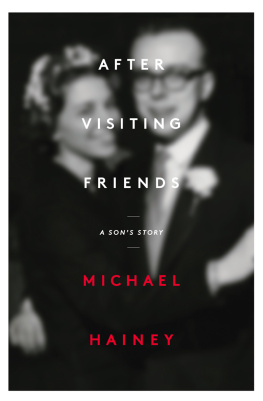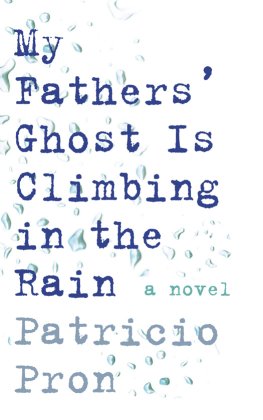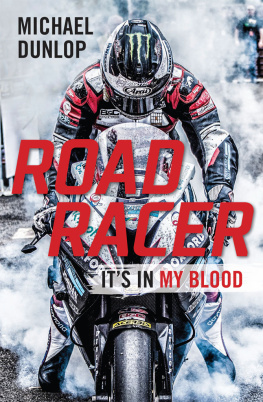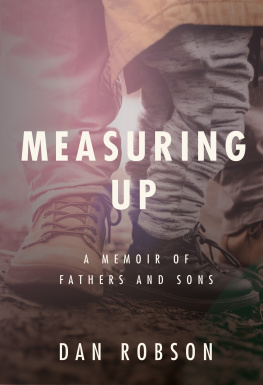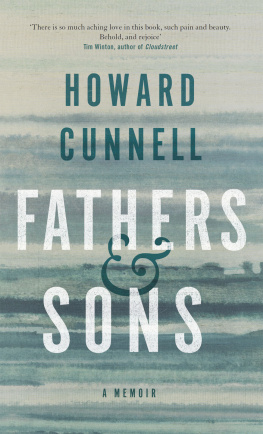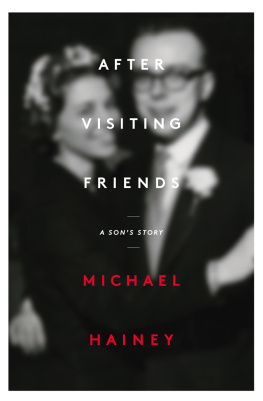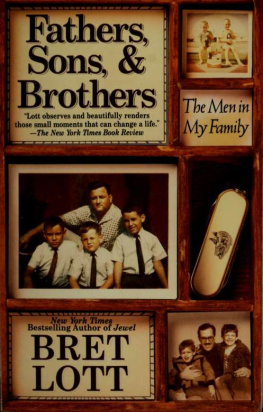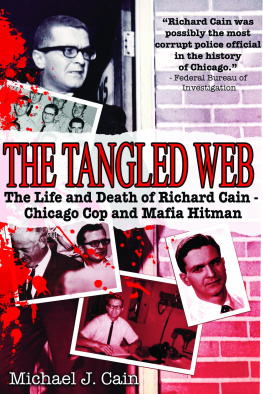ACKNOWLEDGMENTS
Impossible without Andrew Essex, Nan Graham, Bill Clegg, Chelsea Cardinal, Mark Hainey, Barbara Dow Shields, Alessandra Stanley, Jim Nelson, John Hodges, Punch Hutton, Junno Lee, Maximillian Potter, Daniel Burgess, Ted Heller, Iris Johnson, Nate Berkus, Andy Comer, Rachel Greene, Thom Browne, Andrew Bolton, Christian Jail-lite, Cindy Viera, Stephen Kong, Becca Kong, Meg Castaldo, James Wright, Richard Hugo, John Duffy, Rick Meyer, Amanda Puck, Julie Duffy, Andrew Santella, Ren McKnight, Anthony Sunseri, Mark Seliger, Lisa Kogan, Seamus Heaney, Laura Vitale, Ed Hirsch, Christopher Swetala, Susan Morrison, David Remnick, Nora Ephron, Nick Pileggi, Nicholas Christopher, John Bramsen, Norma Bramsen, Karen Kulzer, John Cundiff, James Hoge, Nancy Bonetti, Mark Flashen, Graydon Carter, Peter Mezan, Fred Woodward, Aime Bell, David Kamp, Kurt Andersen, Bill Drennan, Susan Moldow, Kay Flaska, Paul Berning, Tom Moffett, Natty Bumppo, Craig Klugman, James B. Strong, Rick Soll, Laura Wise, Rick Kogan, Juanita Zink, Bess Kalb, Kate Lloyd, Wendy Sheanin, Elizabeth Gilbert, Nick Flynn, David Sheff, Peter Orner, Lisa Hutcherson, Van Hutcherson, Pete Hunsinger, Roy Wiley, Anne-Marie Colban, John Jeremiah Sullivan, Gabrielle Hamilton, J. R. Moehringer, Liz Farrell, Jan Scott, Erica Crenshaw, Lynne Codjoe, Carol Ness, Jim Houck, Vene Heimerl, Antonio Sersale, Carla Sersale, Albert Camus, Nate Erickson, Linsey Fields, Anne-Marie Colban, Andre Mellone, Andre Viana, Brian Sawyer, Lois Wille, Sheila Wolfe, E. J. Samson, Jessica Glavin, Morgan Kondash, Si Newhouse. Most especially, Tim and Teresa Hess and the Hess Family. Also, Wendy Hainey, Glenn Hainey, Eleanor Hainey, Beatrix Hainey, Brooke Hainey, Estelle Hudak. Finally, Christopher Hainey and Barbara Coriden.
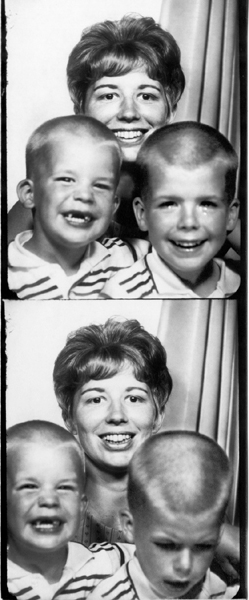

MARK SELIGER
MICHAEL HAINEY was born in Chicago and now lives in Manhattan. He is the deputy editor of GQ.
MEET THE AUTHORS, WATCH VIDEOS AND MORE AT
SimonandSchuster.com
Jacket Design: CHELSEA CARDINAL
Jacket Photograph: RON BAILEY
COPYRIGHT 2013 SIMON & SCHUSTER
WHAT YOU ARE
I was home from school, visiting my grandmother in Chicago, when she told me this story, a story that involved an old Polish custom: When a boy has his first birthday, his family sits him in his high chair, and on the tray before him they place three objects
Coin
Shot glass
Crucifix
Whatever the boy chooses, my grandmother says to me, that will be his life.
And I? I said. What did I choose?
You? she says. You slammed your fist on the tray, sent everything scattering to the ground. There was your mother, on her knees, searching, cursing you and all the pieces she couldnt find.
I never heard that story.
Theres lots of stories you havent heard.
#
Even when I was a kid, and the holiday dinner was over, the plates pushed aside and the adults having coffee and the kolaczki that my grandmother always made, Id linger at the table, ask her questions about the old days. How, when my mother was a young girl they had no money for medicine, so if she had a sore throat, my grandmother would make mashed potatoes, roll them in a dish towel, and put them on my mothers neck. A hot compress. Or shed tell me how my mother learned to play the accordion from Mr. Carnevale, down the block. Every Saturday, wrestling her instrument into her red wagon, pulling it to his studio on 63rd Street.
Once, some years ago, we were sitting around my mothers kitchen table playing cardsmy mother, my grandmother, and me; the matriarchy and me. (My grandfather was dead by now, and my father had died years earlier.) I asked my grandmother what it was like when she first got married. This was 1934. Middle of the Great Depression. They said their vows on Thanksgiving, so they could cobble together a four-day weekend and call it their honeymoon, such as it was. My grandfather was the only one working in his familysupporting his parents and his eight brothers and sistersso he was unable to take any time off for the wedding, let alone a honeymoon. Not that they had the money to. Eighteen months later, my mother was born.
My grandmother tells me that she and my grandfather were so poor that they could not afford a crib for my mother, and for the first year she slept in an old dresser drawer.
Sometimes at night Id tuck your momma in and then Grampa and I would go to the corner tavern and have a beer. Cost a nickel. That was our Friday night.
Wait, my mother says. You left me home in the drawer? Alone?
You werent alone, my grandmother tells her.
Who was watching me? my mother asks.
God.
My mother slams her hand on the table, gets up, and starts washing dishes.
My grandmother looks at me. Whats she so hot about?
#
One Christmas Eve, I had driven my grandmother and grandfather home. Were sitting at the kitchen table, a bowl of pears between us, ripening green to yellow. My grandparents are telling me a story about the old neighborhood, and they cant agree on when the story happened. My grandfather taps his finger softly on the table, three times, and says, No, it was 1917. I know because it was the summer we hanged the kaiser in effigy.
Youre right, my grandmother says. There was a parade through the neighborhood, and we strung him up on a streetlight in front of Saint Adalberts. Lit a big fire out of trash.
And Im sitting there, thinking: How many people remain who can speak the sentence It was the summer we hanged the kaiser in effigy?
Her parents were from Krakow. Crack-oov is how shed say it. She told me that her father tuned organs in a church there. They ended up in Chicago. Back of the Yards neighborhood. Poles. Germans. Austrians. What my grandfather called Bohunks and Polacks, all of us.
Her father ran a corner store. Canned goods. Boxes of basics. Shelves of staples for the families who washed up on the block. Families of men who worked the slaughterhousesthe Chicago Union Stock Yards. For a good hundred years, there was nothing like it on earth. An entire square mile of Chicago, devoted to butchering cattle and hogs or any other beast a man could ship from Americas hinterlandsour prairies and plainsturning it into canned meat, churning all of it into the bounty of America. This was the land of Swift, the kingdom of Armour. Chicago as the disassembly line. Chicagohow fast and how efficiently a creature could be reduced. Rendered. Broken down.
On summer nights, when the wind blew off the lake, the stench of death and dung hung over the whole city. My grandmother told me that some nights in her bed, shed be awakened by what she called the sad groaningbeasts in the dark, all those miles away. Chicago.
That was them. Running their store and living in a small apartment in the back of it: my grandmother, her baby sister, her father and mother. That is, until her brother is born and their mother dies in the bedroom, giving birth. Her father pushed the baby into my grandmothers hands, the baby still bloody, said, Here.
Then he got drunk.
My grandmother was left to raise her sister and her baby brother. A year later, when my grandmother was twelve, her father found a new wifeSally. Sally was sixteen. Sally turned my grandmothers father against her, and the day that my grandmother turned fifteen, she left, took a job cleaning houses for some rich people. But she persevered. To me, perseverance is the great trait. She taught me that.
I was in my thirties when I told my grandparents I wanted to see the old neighborhood. This was March. Thick of Lent. We get in my mothers Buick. Chunks of rotting snow cling to the edge of the road, crusted over with carbon. Looking like they were smeared with newsprint. News of days long past, forgotten.

